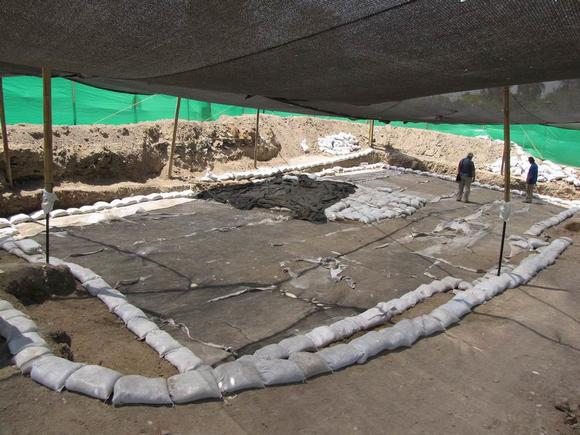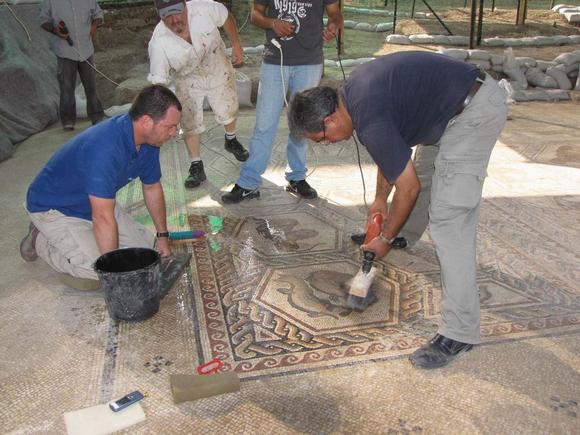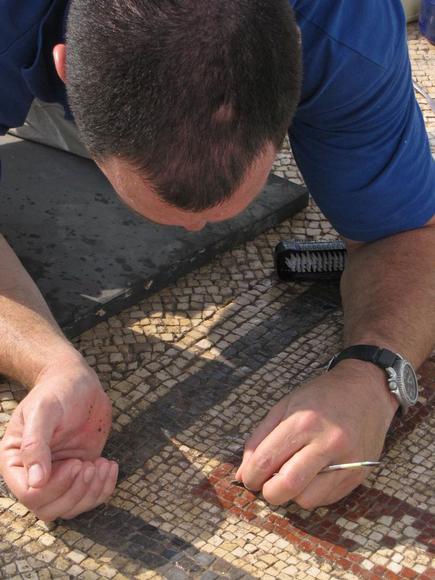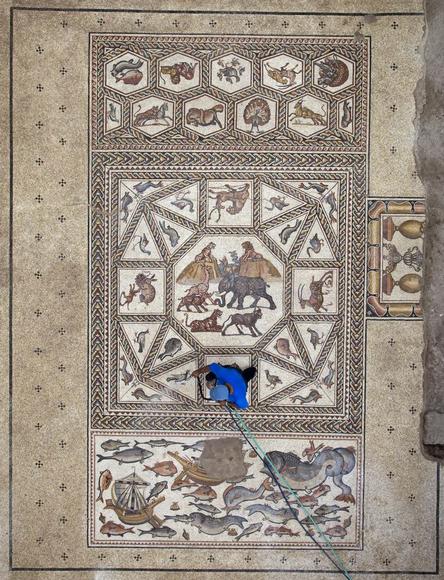Uncovering the mosaic
The uncovering of the mosaic was carried out during June-July 2009 by staff from the Central Archaeological district of IAA. The soil layers were removed by means of a mechanical excavator as far as the basalt layer. This layer was removed by hand without disturbing the geo textile covering the mosaic. The geo textile and the plastic mesh, together with any remaining covering material, were removed by the conservation team only after they had been allowed to dry out gradually. In this way the formation of salt crystallization on the mosaic surface was prevented.
 2009 - uncovering of the mosaic: The site before the removal of the geo textile
2009 - uncovering of the mosaic: The site before the removal of the geo textile
Condition of the covering materials
- The crushed basalt layer worked perfectly, causing no chemical or physical interaction with the mosaic. It was very easy to clean because it is not sticky. The use of the material is recommended for reburial if available: is a chemically inert and low-priced material.
- Geo textile: was in very good condition, not attached to the mosaic surface. Presence of microorganisms was observed only in the northern part of the mosaic (10 sq meters were affected). The character of the organisms is unknown and the possible cause of the microorganisms’ growth could be the process of uncovering the mosaic (exposure to light).
- Plastic mesh: was completely intact and helped to clean the mosaic from the residue of basalt (in the case the mesh was used to reinforce the two layers of geo textile).We recommend for the future to use the mesh under the geo textile inside of a layer of clean sand.
Cleaning
The covering materials were cleaned with brushes.
 Cleaning the mosaic
Cleaning the mosaic Salt incrustations were cleaned with scalpels and pneumatic tools with plastic brushes.
 Cleaning with a scalpel
Cleaning with a scalpel Where needed, poultices with EDTA (30g/l in water) and Carbogel were successfully used.
Condition of the mosaic
The condition of the mosaics was assessed using the documentation recorded in 1996.
In general the mosaic is in perfect condition. No changes or losses were observed. The conservation materials (mortars) performed very well and protected the edges and lacunae in the mosaic from further deterioration. The cracks on the mosaic in the northern part were filled with mortar in 1996. This loosening of material is an indication of the active process of shrinkage and movement in the foundations.
 Photodocumentation: Humidifying the surface before photography
Photodocumentation: Humidifying the surface before photography Conservation: 1 | 2 | 3 | 4 | 5 | 6 | 7 | 8 | 9 | 10 | 11 | Next page




